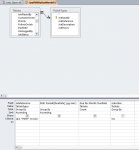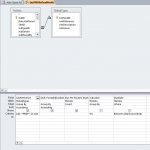DaveCollins181
Registered User.
- Local time
- Today, 18:39
- Joined
- Oct 27, 2014
- Messages
- 45
Hi All, I am trying to create a Totals Query which returns a data set between two dates. So far I have managed to select the data I want (Please see attached screenshot). However, I only want to select records between a date range working on my field [DueDate]. If I add the due date field to the current query then it removes the grouping and all records are displayed. Can anyone offer a solution? Thanks David.



